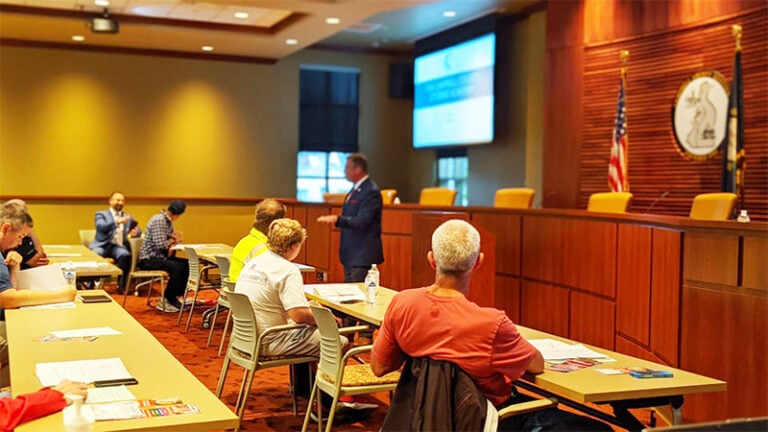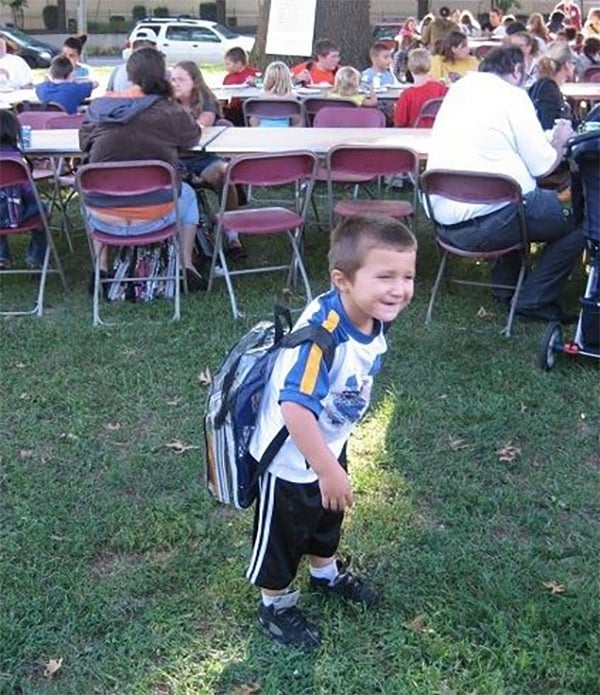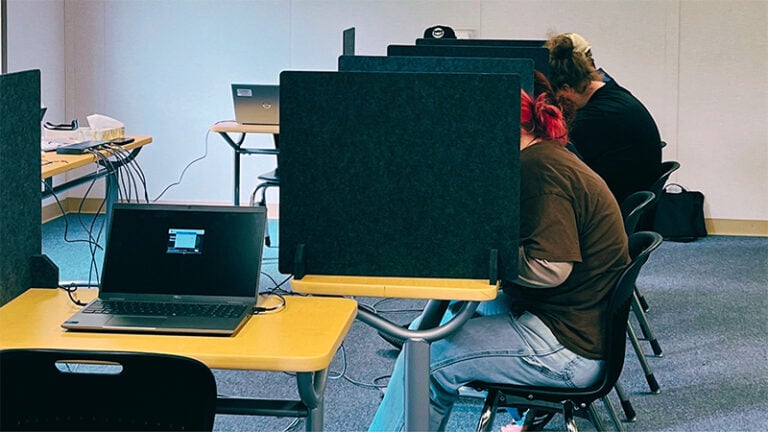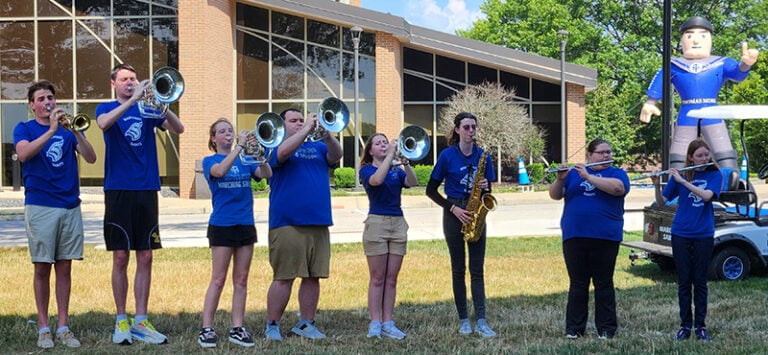By Steve Flairty
KyForward columnist
Hot, tired, and with a bit of a cough, I slowly moved the aged and worn push broom through the last bit of dust, some mouse droppings, and loose pieces of grain. The concrete floor in Dad’s detached garage was almost clean, or relatively so. The garage, once full of small machines and hand tools, and still a place of homemade work counters and small storage containers for nails, nuts, and bolts, was a challenge for me on this Sunday in rural Pendleton County. It was a day when I missed church to work with my brother, Mike, to remove the last vestiges of Mom and Dad’s estate property in order for the new owners, Tony and Sandy, to fully claim it as their own.
It was reflective day for me, too.
On the floor in a crevice between the two pull-down garage doors, almost hidden in a small pile of debris, a four-inch long tobacco spear showed its rusty, pointed self to anyone who might be sweeping the floor—and that would be me. It was as if the piece of metal desired, tentatively, to check me out… to see if there was any interest in renewing our relationship that pretty much dissolved about 35 years ago.
I must admit that in growing up 20 minutes farther north, in Claryville, the family tobacco crop we raised was not at the top of my youthful priority list—never was. I can think of only two parts of it liked. First, I liked the burning of tobacco beds, which in those days was a non-chemical way to free tobacco seedlings from weeds. The recycling of stripped tobacco stalks onto the harvested field was also fun, even a game. I could throw each stalk off the wagon like a javelin, delighting when the stalk would stick in the ground.
But otherwise for this gawky, pimple-faced kid, I did the work of tobacco growing, or my part, with reluctance. I didn’t like “suckering” tobacco, which meant pulling the small, gummy growths near the leaf stems away from the stalks. For that matter, “topping” the flowers off the stalks, was just about as bad, but luckily, Dad did most of that chore. The way he figured it, doing the task wrongly could cause less productive growth habits, and so better not let a kid do it.

There was harvest time, which required lifting as many as six stalks strung on a wooden stick. I also had a fear of heights, and the rails rode high in the tobacco barn. Managing by personal plea to Dad that I avoid climbing in the barn only meant that I had to handle most sticks of burley as we housed them. Those, I would lift above my head from the wagon. It was exhausting work for one who weighed 100 lbs. while entering high school. Then, let’s not belabor the task point of taking the leaves off the stalk, called “stripping.” Done in a small, closed section of our garage and breathing in the dust particles, forming sticky black gum on the hands, the experience was one I longed to escape.
Back to harvest time and the tobacco spear. I remember my attempts at trying to cut tobacco. I can recall that Dad expected me to try my hand at it, but he soon led me toward other jobs in the process of harvest. He saw quickly that for young Steve, a lack of razor-sharp focus could bring on physical harm to his oldest son. It would most likely be a deep thrusting of the sharp spear into the wrist or forearm, or something similar. At that, Dad decided to do most of the cutting, or hire some bigger, more mature people, and my younger brother Mike would continue to do many of the tractor jobs associated with the harvest. Tractors meant little to me.
Finding the tobacco spear in Dad’s garage brought back those memories. I didn’t like working in tobacco, but I did want more time to play, to read, and even to travel, which, before tobacco came along when I was ten, was a pretty big part of my childhood existence.
And so, am I bitter? No. The spear I found representing my youth growing up in a tobacco field has helped form the “sphere” of my adulthood. It really has, I’m convinced.

Let me explain: The tobacco time years ago helped forge a work ethic that has contributed to career successes I once only hoped for. It was expected that we work in our family, and we often did things not particularly enjoyable. Sometimes we worked way past the “dog tired” limits. It was not fun, but over time, it built personal confidence—and an attitude of not sitting and being passive. I have that today, perhaps in spades. The difference today is that I have much more choice for which to expend the energy, and I gladly choose things like teaching and writing. That puts me in the sphere of hard work with passion, and it often means gratifying results.
And, as bad as I dislike smoking and its harmful effects (being around the smoke quickly makes me get a headache), and having seen what has happened to several relatives, I nevertheless realize that my college education was largely paid for by the income from many yearly tobacco crops. In fact, I enjoyed going to college full-time and was not distracted by the need to have a job during the school year, a remarkable by-product of working in burley.
Sitting down to home-cooked meals was a daily part of our family’s life, and that stayed steady even when we walked directly out of the tobacco patch to enjoy them. Mom was a superwoman and example, both working the fields and somehow getting tasty meals on the table. Maybe it was a simple thing in life, but the good food felt, to me, like a reward for the discipline of work. Today, I appreciate a good meal with homegrown vegetables and conversation that celebrates a sense of doing things together.
To wit, there were other chores in the Flairty household not related to tobacco, but the influence of the crop grown for its special leaf is most plastered in my memory.
Not sure I could do the whole thing again, but guess I wouldn’t trade the experience. I’m glad that I recently had a bit of a reunion with that tobacco spear. We’ve grown somewhat closer with the passage of time.
Northern Kentucky native Steve Flairty is a teacher, public speaker and an author of six books: a biography of Kentucky Afield host Tim Farmer and five in the Kentucky’s Everyday Heroes series, including a kids’ version. His new book, “Kentucky’s Everyday Heroes #4,” has recently been released and is available for purchase here. Steve is a senior correspondent for Kentucky Monthly, as well as a weekly KyForward and NKyTribune columnist and a member of the Kentucky Humanities Council Speakers Bureau. Read his past columns for excerpts from all his books. him at sflairty2001@yahoo.com or friend him on Facebook. (Steve’s photo by Connie McDonald)



















Wonderful story. Took me back.